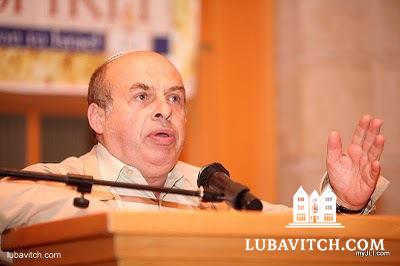Natan Sharansky, chairman of the Jewish Agency for Israel, drew some 20,000 listeners Sunday afternoon as he delivered a Passover web address on TorahCafe.com.
Billed “The Courage to Be Free,” the remarks by the famous Soviet refusenik focused on how his Jewish identity empowered him to preserve his own inner freedom even during the worst of his long incarceration in Soviet prisons, torture cells and the Siberian gulag.
The author of several books on the subject, Sharansky spoke of his enslavement to the system until he discovered his Jewish roots. Apropos to the Passover story, it was that discovery some years earlier, he said, that enabled him—much as it did the Jewish people of old—to protect his identity despite the physical persecution he endured.
“If there was meaning to my freedom, it was because I found my identity. Before that I only wanted to be like everyone, to disappear, to try to succeed in my science. Now my freedom became meaningful.” Discovering his heritage, he said, made him “want to continue the path of our fathers, to build a family where my children will follow this path.”
In the week leading up to the webcast, the event was heavily publicized in print and internet media. “There are so many opportunities to engage the Jewish market today,” said Rabbi Levi Kaplan, director of TorahCafe.com, a project of the Rohr JLI. “The idea of inviting Mr. Sharansky—who experienced his own exodus—to speak to an international Jewish audience at this time was very well received.”
Sharansky, who recently revamped the Jewish Agency’s mission to make Jewish identity and education the organization’s first priority, turned his remarks to college students. On many college campuses in the U.S., he noted, “there’s some strange unity between fundamentalist Muslim forces who want to destroy the State of Israel and those so-called liberals who under slogans of human rights, and freedom and democracy are joining the efforts to attack the legitimacy of Israel.
“They succeed to convince young Jews who believe in freedom that they have to choose between universal values and national values.”
It is a distinction, he insisted, that “is absolutely mistaken.” As a case in point, Sharansky spoke of the history of the Soviet Union. Jews were at the forefront of the Bolshevik revolution, and, in order to “bring happiness and justice to all the world,” he said, many chose to abandon “their tradition, their people, their shtetl.” In the end, what they created amounted to “one of the most bloody . . . regimes in the history of mankind.”
By contrast, when Jewish refuseniks “went back to our religion, to our tribe,” said Sharansky “we had the strength to fight for all our rights and make the whole world a more free place.”
Sharansky urged young Jews to recognize that true freedom is a product of a strong Jewish identity and connectedness with one’s history and traditions.
The fight for world freedom, he insisted, begins on the individual level. One gains strength from reaching back to one’s roots. For Jewish people, “all this begins with the fact that you discover that you have your family, your history, your people who have the unique path of being in the image of G-d, who took the task of building a moral and just world for everyone.”
From his own struggles in the Soviet Union, Sharansky said he learned that “proud Jews connected to the past and the future” can succeed at making this world a better place.
The webcast is available for viewing at www.torahcafe.com.

Be the first to write a comment.